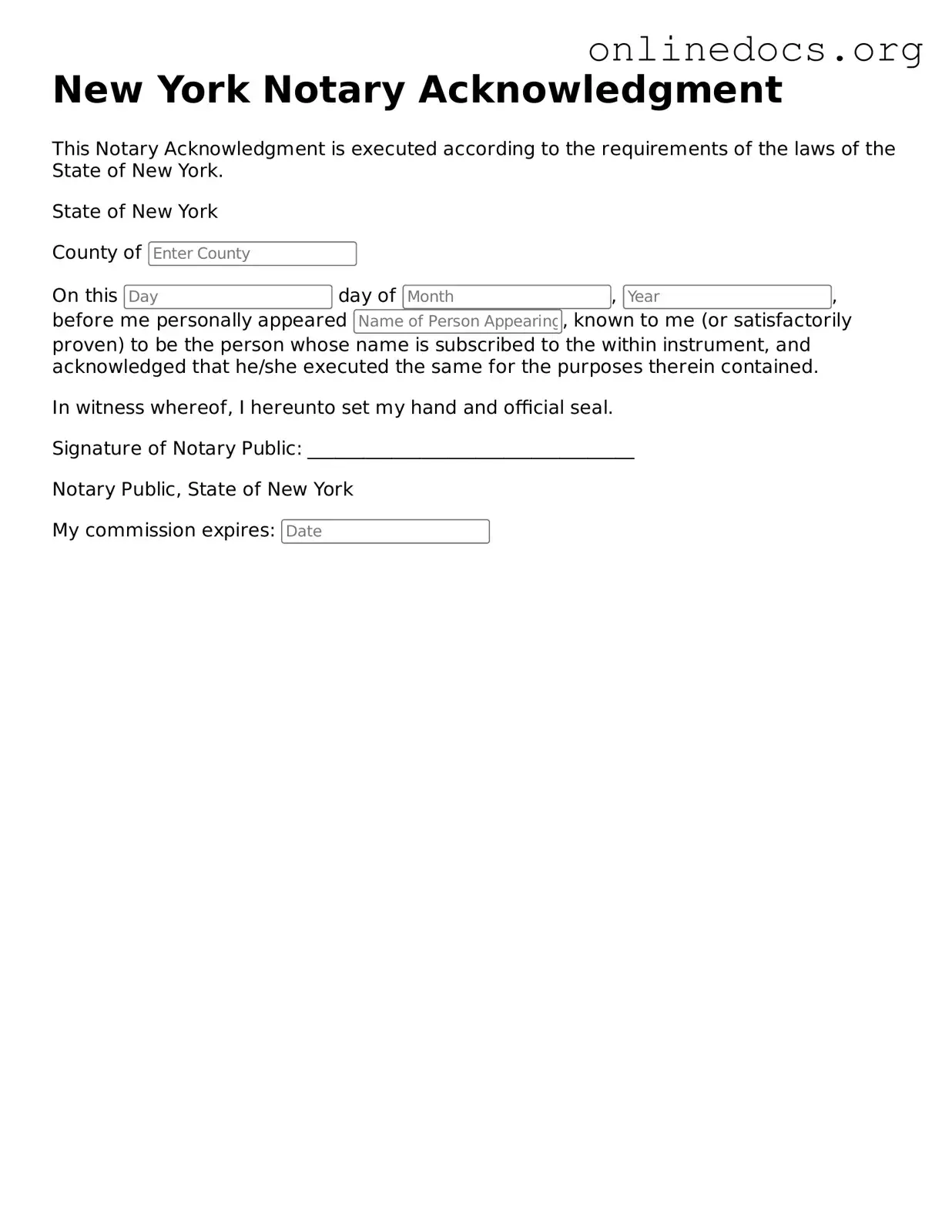When filling out the New York Notary Acknowledgement form, individuals often overlook essential details that can lead to complications. One common mistake is failing to provide the correct name of the signer. It is crucial that the name matches the identification presented. Discrepancies can raise questions about the validity of the document and may result in the need for additional verification.
Another frequent error is neglecting to include the date of the acknowledgment. The date serves as an important record of when the notarization occurred. Without it, the document may be considered incomplete, which can hinder its acceptance in legal or official matters.
Some people mistakenly assume that the notary can fill out sections of the form for them. While notaries are there to witness signatures and verify identities, they cannot complete the acknowledgment form on behalf of the signer. This misunderstanding can lead to improperly filled forms that are not legally binding.
Additionally, signers sometimes forget to sign the document in the presence of the notary. The purpose of the acknowledgment is to confirm that the signer is indeed who they claim to be and that they willingly signed the document. If the signature is not made in front of the notary, the acknowledgment may be deemed invalid.
Another common oversight involves the notary's signature and seal. Some individuals fail to ensure that the notary has properly signed and sealed the form. The absence of a signature or seal can render the notarization ineffective, leading to potential legal issues down the line.
Lastly, people often overlook the importance of checking the form for completeness before submission. Missing information, such as the notary’s commission expiration date or the jurisdiction, can create unnecessary delays or complications. Ensuring that every section is filled out accurately helps to avoid future problems.
